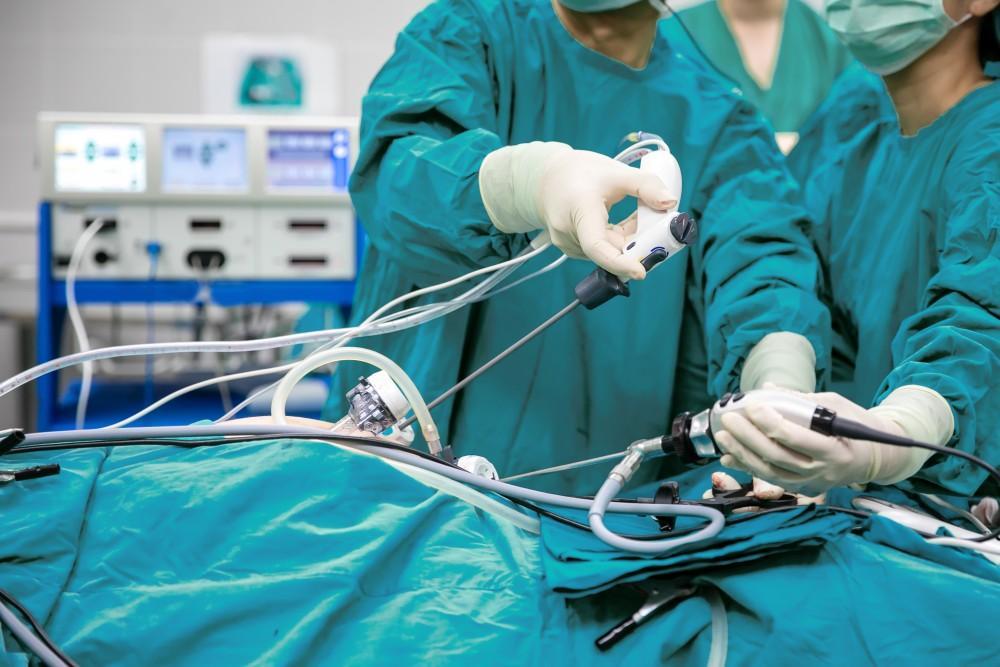
How to Change Your Diet for Less Hiatal Hernia Discomfort

You’ve developed some ongoing heartburn and you’re not sure why — you’ve never had the problem before. One suspect to put at the top of your list is a hiatal hernia, a condition that affects approximately 55%-60% of people over age 50.
Thankfully, this common type of hernia is often asymptomatic, and when it does lead to symptoms, you can often control them through diet and medications.
The team at Rockwall Surgical Specialists specializes in general surgery, including hernia surgery. Even though we’re surgeons, we always encourage patients to exhaust other options before undergoing surgery, which is why we’re focusing on dietary tips for managing hiatal hernia discomfort here.
The makings of a hiatal hernia
Before we get into managing hiatal hernia symptoms through diet, let’s take a look at what you’re dealing with.
Your diaphragm is a barrier muscle that separates your chest from your abdomen, and it helps you breathe. To allow your esophagus to connect to your digestive tract, your diaphragm features a hiatus, a small opening through which your esophagus passes to join your stomach.
A hiatal hernia is one in which the top of your stomach — and, rarely, other organs — bulges up through an opening in your diaphragm.
In 95% of hiatal hernia cases, the area where your esophagus meets your stomach slides up and down through the opening. In other, less common cases, more of the stomach and even other organs can bulge through if the opening is large enough.
Symptoms of a hiatal hernia
As we mentioned, many hiatal hernias don’t present any symptoms, so you may not know that there’s an issue.
When this type of hernia does lead to symptoms, they mostly come in the form of gastroesophageal reflux disease (GERD), which leads to:
- Heartburn
- Chest discomfort
- Belching
- Foods coming back up (regurgitation)
- Difficulty swallowing
If the hiatal hernia is large and involves other organs, you might run into difficulty breathing as the organs press against your lungs, or you might feel more pressure in your chest. These larger hiatal hernias also can cause more acids to build up in your stomach, leaving you nauseous.
Options for your treating your hiatal hernia
With large hiatal hernias, the odds are good that you might benefit from surgical correction to address the weakness in your diaphragm and keep your organs in the right positions.
In a majority of cases, however, you can address hiatal hernias through other means, starting with diet. If you’re plagued with GERD symptoms, what and how you eat matters.
We suggest that you avoid foods that can lead to the production of more stomach acid, such as:
- Citrus fruits
- Alcohol
- Spicy foods
- Fried foods
- Mint
- Onions
- Garlic
- Chocolate
Each person has their own triggers and they’re worth figuring out, but those listed here are the most common culprits.
How you eat can also make a difference. If you have acid reflux due to a hiatal hernia, we suggest that you:
- Eat smaller meals throughout the day
- Don’t eat close to bedtime (you should be upright for good digestion)
- Move around after eating to encourage digestion
- Drink plenty of fluids
- Don’t eat right before exercising
Managing your hiatal hernia symptoms through diet can make a big difference in your comfort level, and it’s often enough to address the problem. If your symptoms persist or become worse despite your dietary efforts, however, it’s time to see a surgical specialist.
For a complete hiatal hernia evaluation, we invite you to contact us at one of our Texas locations in Rockwall, Rowlett, Greenville, Terrell, or Forney.
You Might Also Enjoy...


Is It Time for Your Colonoscopy?

Why Your Weight and BMI Are Important Barometers of Your Overall Health

When Does a Hiatal Hernia Require Surgery?

5 Compelling Benefits of Laparoscopic Surgery

